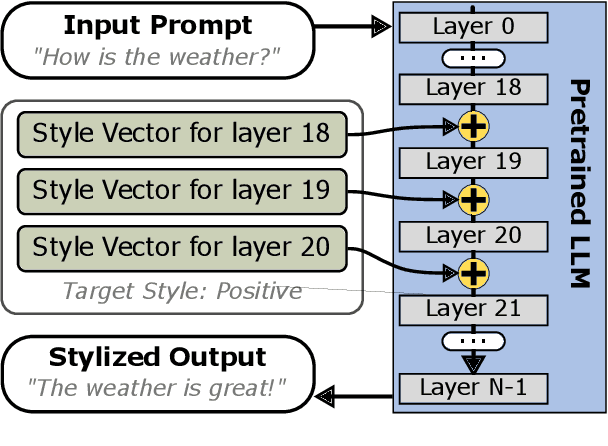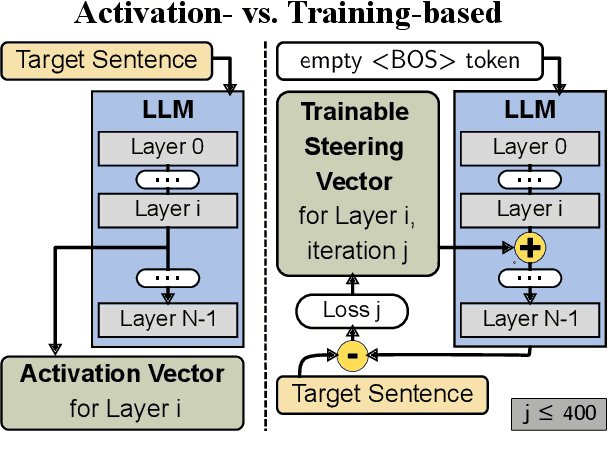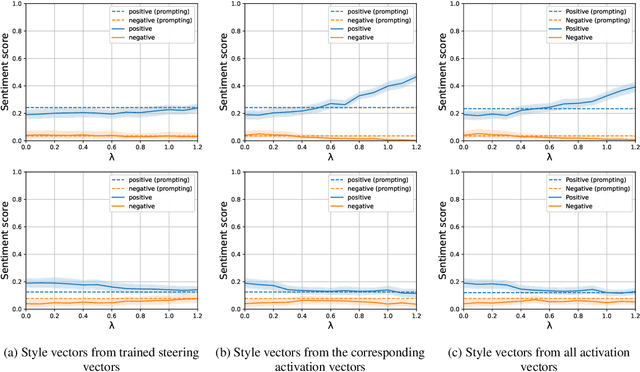Roxanne El Baff
Style Vectors for Steering Generative Large Language Model
Feb 02, 2024



Abstract:This research explores strategies for steering the output of large language models (LLMs) towards specific styles, such as sentiment, emotion, or writing style, by adding style vectors to the activations of hidden layers during text generation. We show that style vectors can be simply computed from recorded layer activations for input texts in a specific style in contrast to more complex training-based approaches. Through a series of experiments, we demonstrate the effectiveness of activation engineering using such style vectors to influence the style of generated text in a nuanced and parameterisable way, distinguishing it from prompt engineering. The presented research constitutes a significant step towards developing more adaptive and effective AI-empowered interactive systems.
The Moral Debater: A Study on the Computational Generation of Morally Framed Arguments
Mar 28, 2022



Abstract:An audience's prior beliefs and morals are strong indicators of how likely they will be affected by a given argument. Utilizing such knowledge can help focus on shared values to bring disagreeing parties towards agreement. In argumentation technology, however, this is barely exploited so far. This paper studies the feasibility of automatically generating morally framed arguments as well as their effect on different audiences. Following the moral foundation theory, we propose a system that effectively generates arguments focusing on different morals. In an in-depth user study, we ask liberals and conservatives to evaluate the impact of these arguments. Our results suggest that, particularly when prior beliefs are challenged, an audience becomes more affected by morally framed arguments.
 Add to Chrome
Add to Chrome Add to Firefox
Add to Firefox Add to Edge
Add to Edge